Throughout history, countless pieces of art have been lost to theft, destruction, or mysterious disappearances. Whether stolen by criminals or destroyed in times of war, these masterpieces have vanished, leaving gaps in the world of art that may never be filled. Some were taken in daring heists, while others were lost in fires or bombings, their fates unknown. Despite extensive searches and investigations, these works of art remain missing, their absence a reminder of both the fragility and value of cultural heritage. Here are some significant works of classic art that, for now, are lost to history.
The Painter on His Way to Work by Vincent van Gogh

This painting by van Gogh, which features a self-portrait of the artist walking with his canvas and tools, vanished during World War II. Stored in a salt mine in Austria to protect it from bombing, the artwork was believed destroyed in an Allied air raid. However, speculation persists that Nazi officials may have smuggled it out, placing it in a private collection. Its whereabouts remain unknown, leaving many to hope for its rediscovery, particularly after similar works were found in Munich years later. With its dark and reflective themes, it reveals much about van Gogh’s mental state near the end of his life. Art historians continue to search for clues, but its fate remains a mystery. Some even suggest it could resurface in unexpected places, as many other wartime treasures have.
The Parsonage Garden at Nuenen in Spring by Vincent van Gogh
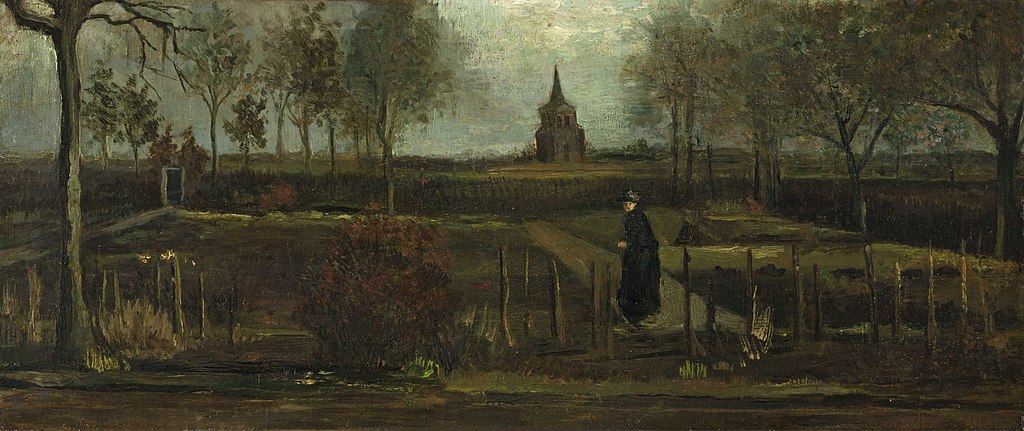
Stolen from the Singer Laren Museum in the Netherlands during the COVID-19 pandemic, this van Gogh painting remains missing despite extensive efforts to recover it. Thieves broke into the museum in a daring smash-and-grab heist, taking advantage of the global lockdowns. The artwork, a muted and somber landscape from 1884, was a reflection of van Gogh’s early years in Nuenen, capturing the bleak beauty of the Dutch countryside. Though ransom photos surfaced after the theft, the painting itself has not been recovered. Experts speculate it may be held as collateral in the criminal underworld, making its return a complex affair. With each passing year, the chances of recovery seem slimmer, though the work continues to hold an essential place in van Gogh’s early oeuvre.
View of the Sea at Scheveningen by Vincent van Gogh
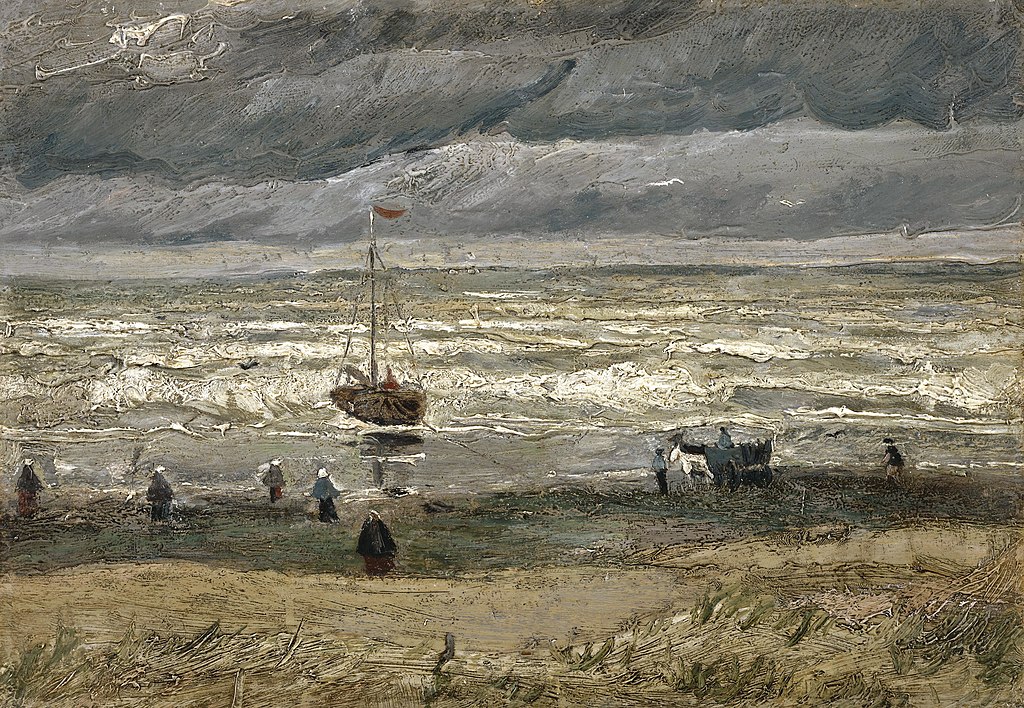
This early van Gogh painting, created in 1882, was stolen from the Van Gogh Museum in Amsterdam in 2002, along with another painting by the artist. Depicting a windswept beach near The Hague, it is notable for the grains of sand embedded in the oil paint, a testament to van Gogh’s outdoor work. Thieves used a ladder to access the museum’s roof and bypassed alarms and security to steal the painting in under ten minutes. Though arrests were made, the painting has never been recovered. Van Gogh’s seascapes, rare and valuable, hold a particular interest for collectors, making this loss especially painful. The museum continues to offer a reward for information leading to its recovery, keeping hope alive that it may resurface. Many believe it has been hidden away in a private collection.
Poppy Flowers by Vincent van Gogh
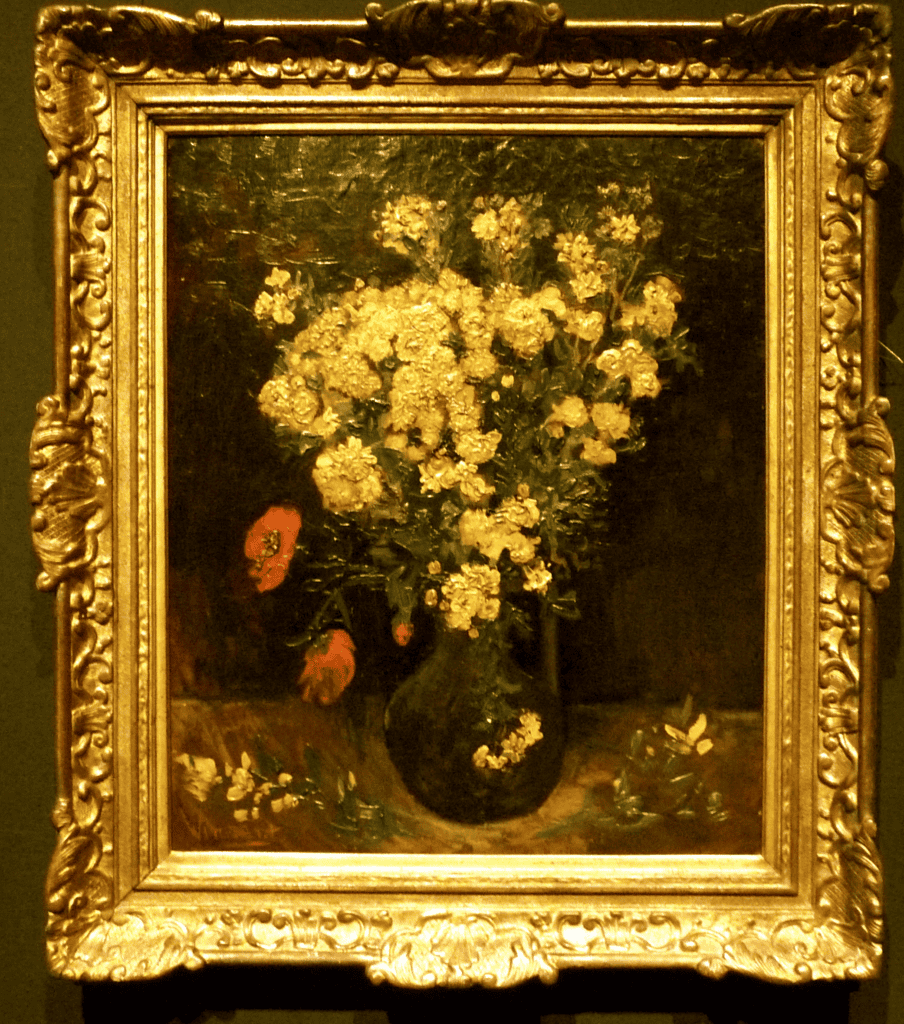
Willyman / Wikimedia Commons
Van Gogh’s “Poppy Flowers,” painted in 1887, was stolen twice from the Mohamed Mahmoud Khalil Museum in Cairo. The first theft occurred in 1997, with the painting later recovered in Kuwait. However, in 2010, thieves struck again, cutting the artwork from its frame and walking out of the museum undetected. Poor security measures, including non-functional alarms and cameras, were blamed for the heist. Despite its estimated $50 million value, the painting has yet to resurface, leading to speculations that it remains hidden in the black market. This small but significant painting, influenced by van Gogh’s Parisian years, showcases his early exploration of color and form.
The Concert by Vermeer
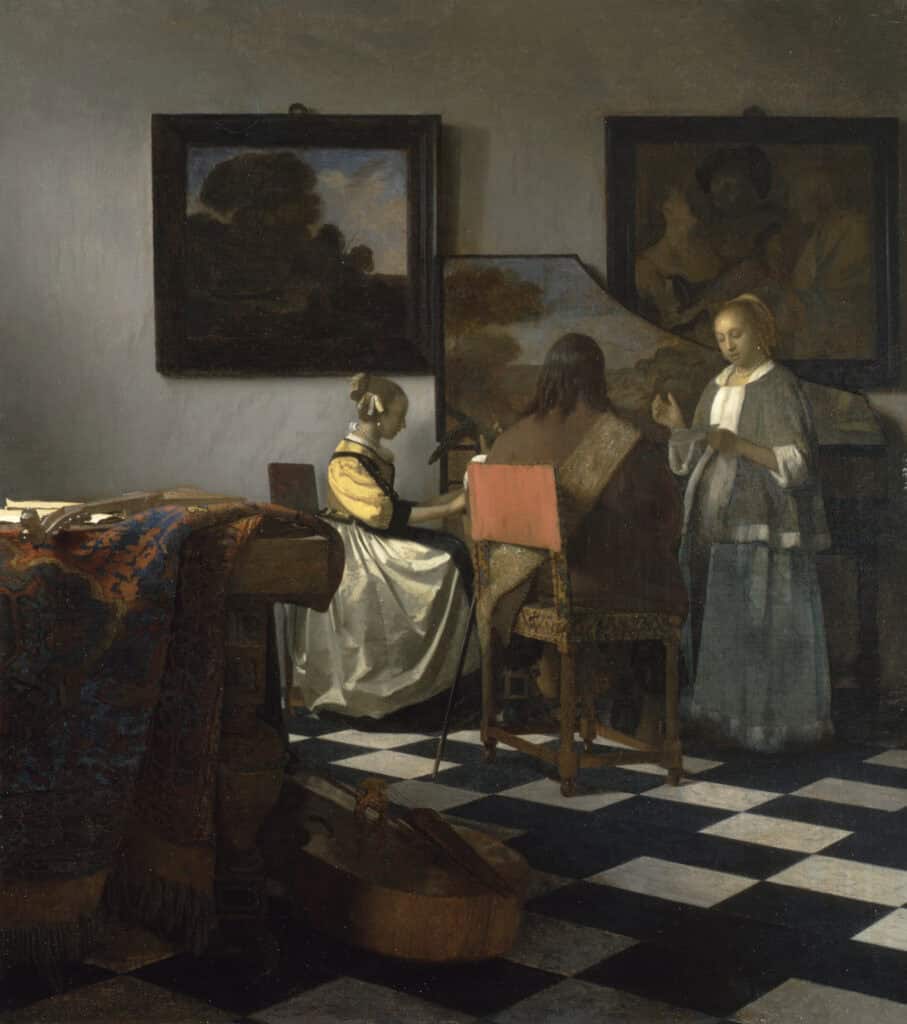
One of the most famous art heists in history occurred in 1990 when Johannes Vermeer’s “The Concert” was stolen from the Isabella Stewart Gardner Museum in Boston. Two men disguised as police officers entered the museum, subdued the guards, and stole 13 pieces of art, including Vermeer’s masterpiece. The painting, a delicate rendering of three musicians, is one of only 36 known works by the Dutch master. Despite numerous leads and a $10 million reward, it has never been recovered. The FBI continues to investigate, but the painting’s fate remains elusive. The artwork’s value is immeasurable, both for its rarity and its depiction of light and texture. Some believe it has been hidden in a private collection, waiting for the right moment to resurface.
Storm on the Sea of Galilee by Rembrandt
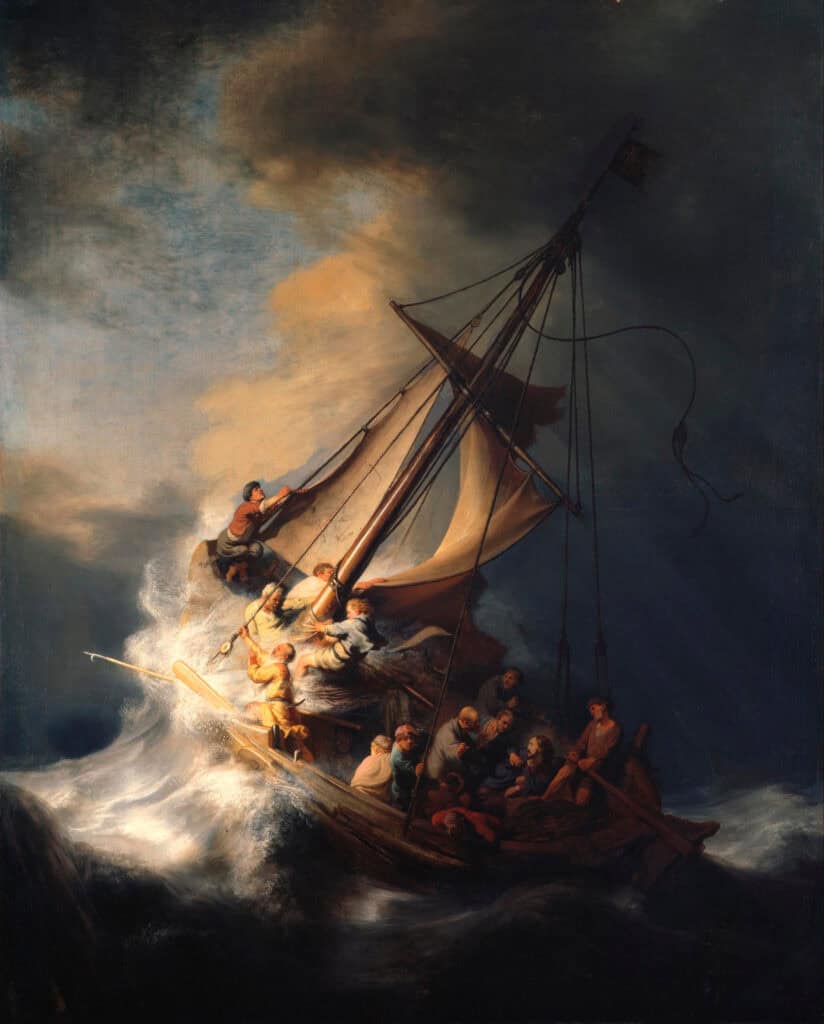
Another victim of the 1990 Isabella Stewart Gardner Museum heist was Rembrandt’s “Storm on the Sea of Galilee.” This dramatic depiction of Christ calming the storm is Rembrandt’s only known seascape. Its dynamic energy and masterful use of light make it one of the most significant losses in art history. As with “The Concert,” the painting’s whereabouts remain unknown, though it is believed to be in the hands of private collectors. Over the years, the FBI has followed numerous leads, but none have led to the recovery of the artwork. The theft continues to capture the public’s imagination, and the museum’s empty frames serve as a stark reminder of what was lost.
Portrait of a Young Man by Raphael

Raphael’s “Portrait of a Young Man,” painted around 1513, was seized by the Nazis during World War II. Once part of a prominent Polish collection, it was taken by the Gestapo from the Czartoryski Museum in Kraków. The painting, widely considered to be a self-portrait, is a prime example of Raphael’s mastery of portraiture. It was last seen in the possession of Nazi governor Hans Frank before it disappeared at the end of the war. Despite extensive searches, including by the Monuments Men, its location remains unknown. Some believe it may be hidden in a private collection or lost during the chaos of the war’s end.
Nativity with St. Francis and St. Lawrence by Caravaggio
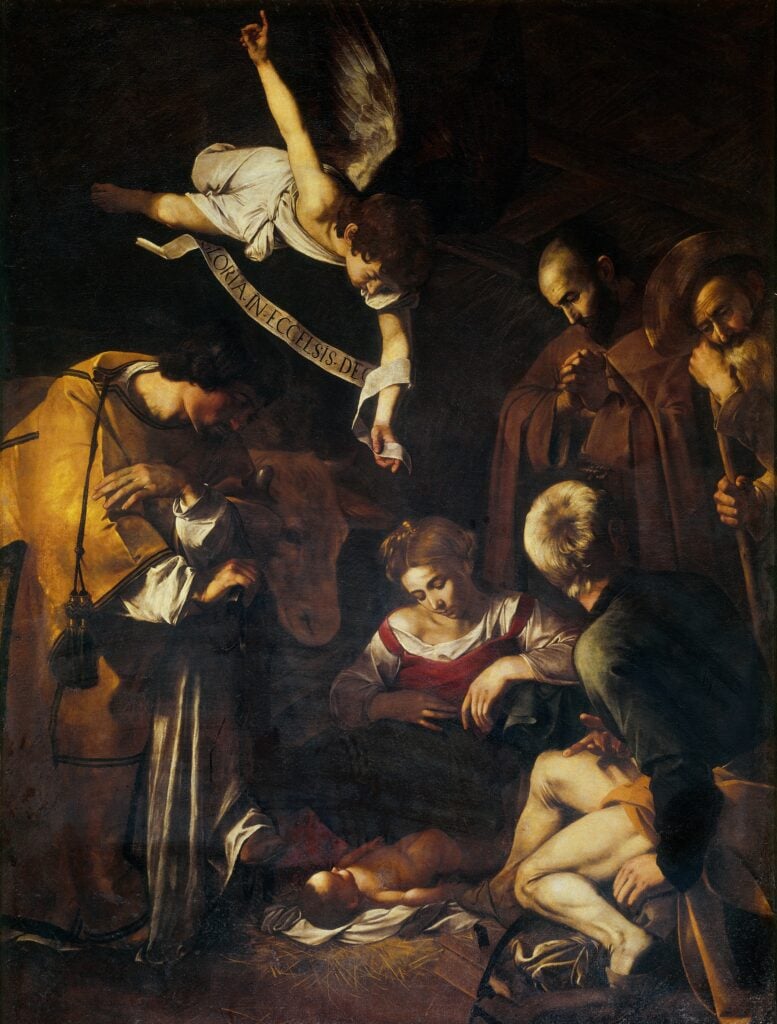
Caravaggio’s “Nativity with St. Francis and St. Lawrence” was stolen from the Oratory of San Lorenzo in Palermo, Italy, in 1969. The painting, created in 1609, depicts the nativity scene with Caravaggio’s characteristic dramatic lighting and realism. Mafia involvement is suspected in the theft, and it is believed the painting was either destroyed or hidden away by organized crime. Despite numerous investigations, including leads provided by Mafia informants, it has never been found. Its absence is a profound loss, as Caravaggio’s work had a transformative impact on Baroque art. Theories about its fate range from it being cut up and sold in parts to being hidden in a remote location.
The Just Judges by Jan van Eyck

One of the most mysterious art thefts in history is the disappearance of “The Just Judges,” a panel from the Ghent Altarpiece by Jan van Eyck. Stolen in 1934 from St. Bavo’s Cathedral in Belgium, the panel has never been recovered despite numerous leads and ransom attempts. The Ghent Altarpiece is one of the most important works of the Northern Renaissance, and the missing panel leaves a significant gap in the artwork. Over the years, the theft has sparked conspiracy theories, including suggestions that it was hidden by Nazi sympathizers or buried somewhere in Belgium. Despite efforts by art detectives and historians, the panel’s whereabouts remain a mystery.
View of Auvers-sur-Oise by Paul Cézanne
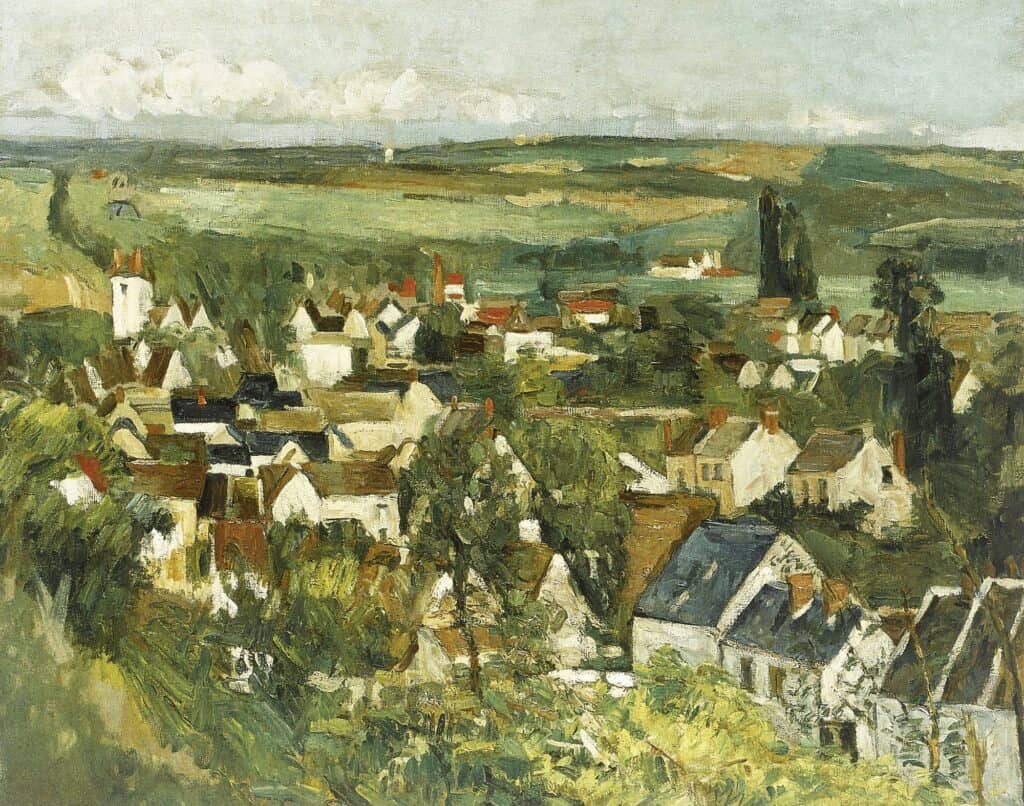
Paul Cézanne’s “View of Auvers-sur-Oise” was stolen from the Ashmolean Museum in Oxford on New Year’s Eve 1999. Thieves took advantage of the fireworks to create a diversion, cutting a hole in the museum’s roof and making off with it. The artwork, a post-Impressionist masterpiece, depicts the French countryside in Cézanne’s distinctive style. Despite investigations, it has never been found, and experts believe it may have been hidden in a private collection. Its value is estimated in the millions, making it one of the most significant art thefts of the 20th century.
This article originally appeared on Rarest.org.
More from Rarest.org
20 Exotic Birds in Danger of Disappearing from Our World

Exotic birds are among the most vibrant and unique species on our planet. However, many of these stunning creatures are at risk of vanishing forever. Habitat destruction, climate change, and illegal poaching have contributed to their dwindling populations. Read More.
16 Elusive Big Cats That Roam the World`s Densest Jungles

The world’s jungles are home to some of the most elusive and mysterious big cats. These majestic creatures often hide in the shadows, making them difficult to spot even in the densest of forests. Read More.
11 Discontinued Toys from the `80s and `90s That Now Fetch High Prices

The toys from the ’80s and ’90s hold a special place in the hearts of collectors today. These iconic items, once seen in every household, have now become highly sought after due to their rarity and nostalgic appeal. Read More.
